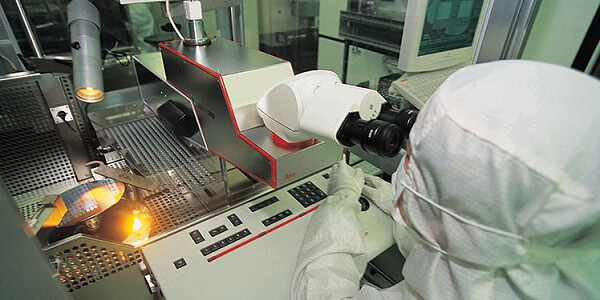
The Korean semiconductor and pharmaceutical industries are breathing a collective sigh of relief following an agreement with the United States to apply "most-favored-nation" (MFN) treatment to South Korean semiconductors and pharmaceuticals. The U.S. government's promise not to impose tariffs on South Korean products at a rate less favorable than on those from other nations is being hailed as a positive development, as it averts the potential imposition of high tariffs, previously feared to be as high as 25%. The U.S. is expected to announce specific tariff rates for semiconductor products soon.
Semiconductor Industry: "Sufficient Competitiveness under Equal Conditions"
Semiconductor companies like Samsung Electronics and SK Hynix see the agreement as a manageable outcome. An official from a major corporation stated, "Since tariffs are a relative concept, our competitiveness is more than sufficient if we're under the same conditions as other countries." This means that in a situation where all global semiconductor companies face tariff burdens, South Korean companies will not be at a particular disadvantage.
Kim Yang-paeng, a senior research fellow at the Korea Institute for Industrial Economics & Trade, supported this view. He analyzed that the likelihood of a sharp decline in Korean companies' price competitiveness is low, noting that "U.S. companies like Micron also have major production facilities in Asia, so they will find it difficult to avoid tariff burdens."
Furthermore, domestic semiconductor companies are actively expanding their production facilities in the U.S. Samsung Electronics is constructing a $37 billion semiconductor plant in Texas, with operations targeted to begin in 2026. SK Hynix has also committed $3.87 billion to build a high-bandwidth memory (HBM) plant in Indiana. These moves are seen as long-term strategies to minimize the impact of tariffs and strengthen their foothold in the U.S. market.
Potential for Short-Term Profitability Decline Remains
However, some are raising concerns about a potential decline in short-term profitability. Hyundai Motor Securities analyzed that if the tariff rate is set at 15%, companies may be forced to lower the prices of memory semiconductors to reduce consumer resistance, which could lead to a drop in profitability for U.S.-bound exports.
Bio Industry: "Must Secure Additional Benefits through Follow-up Negotiations"
The bio industry is also hopeful about the MFN policy. An SK Biopharm official expressed relief, stating, "It's fortunate that the conditions will likely be the same as for the European Union (EU) or Japan." The company has already completed its exports to the U.S. for the current year and is preparing a strategy in line with the forthcoming tariff announcements. SK Biopharm sells its epilepsy drug 'Cenobamate' in the U.S. market and has established a production base in Puerto Rico to prepare for tariffs.
Celltrion is also making efforts to minimize the impact of tariffs by securing local production facilities and stockpiling inventory in the U.S. A company official said, "We are reducing our tariff burden through cooperation with local companies." Samsung Biologics stated it will cautiously monitor the situation as specific tariffs by item have not yet been finalized.
Call for Additional Cooperation, Including Tax Benefits
The industry emphasizes that tariff reductions should be accompanied by other cooperation measures with the U.S. Lee Seung-gyu, Vice Chairman of the Korea Bio Association, ordered, "Korea has high competitiveness, ranking second only to the U.S. in the number of biosimilars approved by the U.S. Food and Drug Administration (FDA)." He added, "Based on these strengths, we must secure various forms of cooperation, such as tax benefits, labor cost subsidies, and joint research, in follow-up negotiations."
[Copyright (c) Global Economic Times. All Rights Reserved.]






























